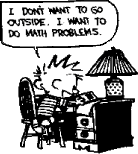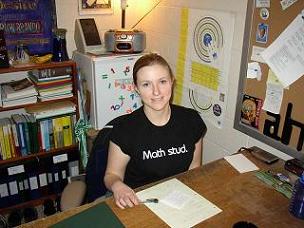
| General Information | Syllabus | Homework | WeBWorK | Exam/Quiz Notes |

| Textbook | Instructors and Lectures | Tutors and Study Groups |
|---|---|---|
| Homework | Quizzes | Examinations |
| Grades | Honor Principle | Disabilities |
| Textbook |
|---|
| |
Calculus of a Single Variable, Second Edition by Earl W. Swokowski et. al. Published by PWS Publishing Company ISBN: 0-534-93924-4 |
This is the same textbook used in Math 1; if you do not have a copy already, it should be available at Wheelock Books.
| Instructors and Lectures |
|---|
Instructors:
|
|
 |
 |
Lectures:
|
|
| Tutors and Study Groups |
|---|
The IAS Program in the First Year Office is running study groups for this course. Classes will be broken up into small groups for the purpose of reviewing the previous week's materials and for doing homework. An undergraduate tutor will direct each group. If you are not currently in a study group, contact your instructor for more information.
Tutors:
|
| Homework |
|---|
The philosophy of
this course is simple:
Mathematics is not a spectator sport! Football players don't train for
the season by sitting around and reading about different plays --
nothing can take the place
of exercise and practice. Similarly, you cannot learn mathematics by
only
listening to the lecture -- you must do problems, and lots of them. The
first
type of homework assignment consists of carefully chosen problem sets
from
the book and in WeBWork. Rather than assign endless amounts of
drill-like
problems, we have chosen smaller selections of "good" problems to be
turned
in. These are the assigned problems that can be found on the homework page. However, to be
successful in this course, you will need to do far more than the
minimum requirements. We recommend you do more than just the assigned
problems. If you are looking for more practice, it is a good idea
to try the odd problems in the same section. All of the answers
will be in the back of the book. In general, WeBWork problem sets
and written problem sets are due by the beginning
of class on quiz days (and are excellent preparation -- see below).
Partial
credit will be awarded. Late problem sets will NOT be accepted.
Problem sets, while vital to your learning the concepts in this course, do not closely model real world problems or situations. It is highly improbable that your future employer will ever say "Find the derivative of f(x) = x2." Rather, it is much more likely that you will be asked to solve actual (i.e. non-textbook-style) problems, whose answer requires more than the statement and application of a formula, and communicates more than a string of equations. For these reasons, we have developed a series of writing assignments: realistic problems presented in a realistic format, which require a realistic response. The problems are at the same difficulty level as those you are already doing in problem sets; they just require a more formal response. For more information, see the following:
| Quizzes |
|---|
There will be weekly quizzes throughout the term, given on Wednesdays (check the syllabus for exact dates). At the end of the term, your lowest quiz score will be dropped from the final calculation. Quizzes will cover the topics from the problem set due that particular day -- in fact, quizzes are basically problem mini-sets, the only difference being that you must complete them on your own without notes or books. The best way to prepare for quizzes is to understand and successfully complete the corresponding problem set, as the quiz questions will usually be modified versions of the assigned book and WeBWork problems for the week. If you are going to miss a quiz, you must contact your instructor before the quiz to arrange a time to take it.
| Examinations |
|---|
There will be two exams and a final in this course:
| Grades |
|---|
| Assignment |
Points |
Approximate
Percentage of Final Grade |
| First
Midterm |
100 |
15.87% |
| Second
Midterm |
100 |
15.87% |
| Final
Exam |
150 |
23.81% |
| Quizzes
(6) |
60 |
9.52% |
| Journal |
20 |
3.17% |
| Homework
/ WeBWorK |
100 |
15.87% |
| Papers
(3) |
60 |
9.52% |
| Problem
Solving |
40 |
6.35% |
| Total |
630 |
100% |
| Honor Principle |
|---|
On Exams and Quizzes: No help given or received.
On Homework: Working together is permitted and encouraged, but NO COPYING. You are
welcome to work in groups to discuss the ideas and specific problems
(also feel
free to discuss with your instructors, tutors, and anyone else you may
find). However, each student is expected to produce the final
written homework set individually and independently.
| Disabilities |
|---|
Students with learning, physical, or
psychiatric disabilities enrolled in this course who may need
disability-related classroom accommodations are encouraged to make an
office appointment to see me before the end of the second week of the
term. All discussions will remain confidential, although the Student
Disability Services office may be consulted to discuss appropriate
implementation of any accommodation requested.
Also, they should stop by the Academic Skills Center in